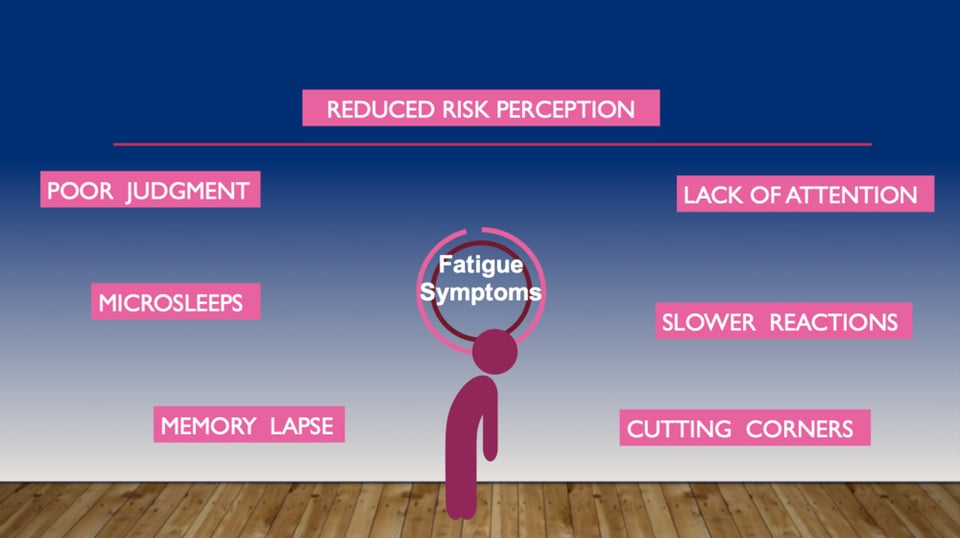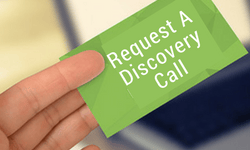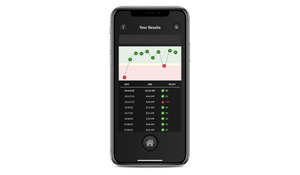I remember the first couple of years after my twins were born. I didn’t know that fatigue could go that deep, or that I could keep moving on such little sleep. I couldn’t really change the situation, but I never should have driven a car under those conditions. I was lucky that nothing ever happened.
Last week, I talked to a man at a safety conference who proudly told me that he worked 12 years on the night shift at a refinery and that he would operate on only a few hours of sleep during the day. He clearly felt that working through chronic fatigue was a badge of honor.
This gentleman and I both dodged a bullet. Not everyone is so lucky to escape making a terrible mistake when they’re fatigued. Consider the Exxon Valdez oil spill or Chornobyl’s nuclear disaster. Both of these were caused by humans operating while fatigued.
“He clearly felt that working through chronic fatigue was a badge of honor.”
The problem is, nearly everyone who is fatigued, either chronically or occasionally, will tell you they can cope just fine. That’s because when you’re fatigued, your brain shuts down. Literally. If your brain doesn’t have enough energy to operate, then it goes into “economy” mode.
Your brain’s filtering mechanism, which normally sorts through input before sending it to your frontal lobe for executive decisions, decides now would be a good time to take a break. This floods your brain with unfiltered input, and processing of any kind becomes next to impossible. You’re overwhelmed, in a daze.
But the same mechanism that is shutting down is also the one we rely on to tell us that we’re in danger of making big mistakes. And at the same time our risk perception is going on the fritz, other fatigue behavior begins to set in. We all recognize the behavior. The problem is, we just aren’t in the right state of mind to do anything about it.

Notice that all of the behaviors above have to do with the brain’s reduced capacity. Generally, we tend to think of fatigue as a physical challenge that we can somehow “push through.” However, that tendency is just proof-positive of the fact that when we’re fatigued, we have no idea what we’re doing.
There are ways to stay alert when you’re tired if you can’t just stop and take a nap. The first way is to make sure you don’t get yourself in that situation to begin with. Sleep is good. Sleep is critical. We have to treat it like the primary practice of well-being that it is.
.jpg?width=500&name=download%20(4).jpg) But if you have a sleepless night for whatever reason, don’t just plow into the day with a plan to simply endure your foggy state of mind. Take some protein with you to snack on and keep your blood sugar as level as possible and avoid the urge to hit the processed carbs. Stay hydrated. Get up and move around. Breathe deeply. Caffeine is good in small doses, and even though you may not have any trouble falling asleep, using caffeine too late in the day may disrupt your sleep. Avoid driving if you can, or operating heavy machinery, or making big decisions, or deciding now is a good time to have that big talk with your spouse. You’re just not up for it.
But if you have a sleepless night for whatever reason, don’t just plow into the day with a plan to simply endure your foggy state of mind. Take some protein with you to snack on and keep your blood sugar as level as possible and avoid the urge to hit the processed carbs. Stay hydrated. Get up and move around. Breathe deeply. Caffeine is good in small doses, and even though you may not have any trouble falling asleep, using caffeine too late in the day may disrupt your sleep. Avoid driving if you can, or operating heavy machinery, or making big decisions, or deciding now is a good time to have that big talk with your spouse. You’re just not up for it.
And then go to bed early if you can. Or if you’re a mother of twins, find someone else to get up with them in the middle of the night occasionally, because you really can catch up on your sleep. Pleasant dreams!



